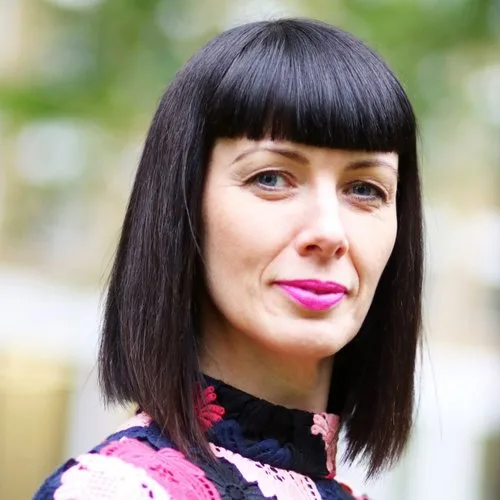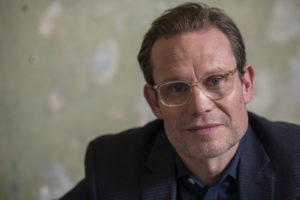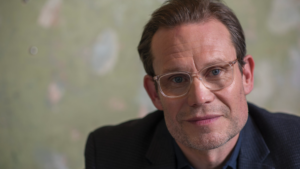Sally Henderson is our new columnist, looking at the pressures of leadership in our industry. Sally is an Executive Change Mentor with over twenty years experience.
Why is it, especially within the creative and marketing industries, that senior leaders and founders are expected to automatically understand and constantly deliver their version of brilliant leadership with little training, support or expert input. Experience – yes, but it takes much more than that to lead successfully.
It’s time to stop accepting that it’s OK for 8 out of 10 senior leaders to not actually know what their role is; to be battling imposter syndrome; to be masking unhappiness, uncertainty and stress under the label of ‘success’.
My role as an Executive Change Mentor is to ensure that senior leaders can access the right support, insights, guidance and challenge that will make them more successful and happier.
It’s not rocket science to suggest that, in this fast-moving world we all work in, the more successful and happier senior leaders are will ensure that this amazing industry we are all part of is future-fit, agile and responsible.
But if we don’t start investing in ourselves, how can we expect to thrive (or for those who are more hesitant to invest in growth, simply survive)?
So what exactly is Executive Change Mentoring and who’s it for?
It’s an approach that’s neither classic executive coaching nor traditional mentoring. It’s for business owners and senior leaders who understand the value of impartial advice, wisdom and knowledge that will guide them quicker to an outcome that they want.
Let’s be clear. This isn’t ‘fixing people’. Building great leaders is not just about being reactive and dealing with the inevitable bumps in the road. It’s about having a partner by your side, pro-actively working with you, who is wholly focussed on driving your success and happiness so you can achieve greater results.
If you’re curious to understand how Change Mentoring isn’t ‘fluffy’ or a ‘nice-to-have’ let me share a couple of real-world stories with you.
Jo (not their real name) runs a successful award-winning creative business. When we initially met, Jo was feeling:
- Lonely and isolated
- Lacking in motivation and fuel
- Questioning her value as CEO of the business
- Uncertain how to reboot and re-channel her impact
- Conflicted on the best way to move herself, her leadership team and the business forward through challenging times
Sound familiar? Here’s the really interesting part. To the world, Jo looked outwardly successful – smiling, senior, confident. But I often find it’s the most successful folk who have become the best experts at masking their true feelings and who endure considerable stress and challenge. And if leaders like Jo are left without access to the right help and support, they risk tipping into burnout, sabotage and real difficulty. Sadly we see this more and more across the industry.
What happened to enable Jo to break the vicious cycle? In summary:
- We created a clear leadership vision and road map for how to develop Jo’s approach, impact and results — right down to re-branding her role.
- Her real feelings were uncovered, listened to, understood and developed from a stressful impact to a healthy emotional foundation upon which to positively build.
- Jo stopped running from change and was brave enough to look her challenges directly in the eye, fully embracing the power of vulnerability and continuing to flex new muscles to make lasting change and to enable Jo to get stronger as a successful leader.
- Jo was then able to move to her next stage of growth and ability in line with the needs and ambitions of her business and senior peers.
Today, Jo’s outlook has radically altered and, as a result so have the fortunes of her business. Fluffy? I don’t think so.
Another story is Alex (not his real name), a rising senior leadership star in a global business on the cusp of becoming CEO. Alex has invested years in developing an office within the group and was eager to embrace the next stage of growth and impact both for his leadership and that of the business.
Despite being globally recognised as a huge talent, Alex was self-aware enough to recognise he only had part of the answers, could fall victim to being stuck in his ways and running headlong into leadership blindspots if his success trajectory was left unchecked. Hence, he proactively sought out advice and support.
At the start of the year, Alex was feeling focused but unclear, eager but impatient and confident yet fearful. Despite his talent and ambition, there wasn’t a clear path or plan for his own growth in line with those of the business – something I see happen a lot within creative businesses.
12 months after starting our work together, the results for Alex and the business are huge; he’s experienced a significant uplift in commercial growth, cultural development and client satisfaction.
My conversations with clients often start with a very simple “How are you?” I think you’d be shocked how many senior leaders have never been asked that — not meaningfully at least. It needn’t be lonely at the top — sometimes you just need someone trusted to demonstrate that.










